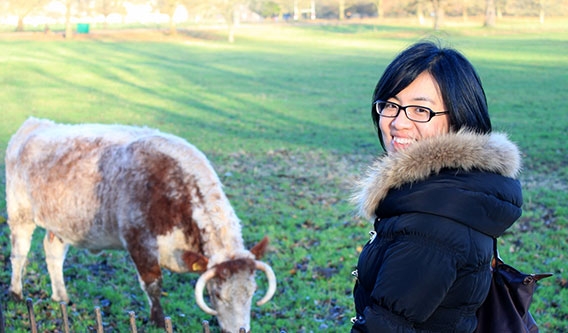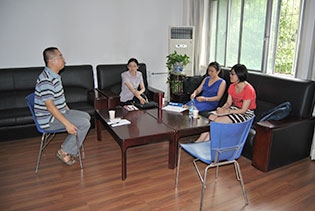CMB Profile: Hu Min

Hu Min is Lecturer at Fudan University’s School of Public Health with a research focus in Health Economics. She completed her PhD at Fudan University. Later, with the support of the CMB Faculty Development Award, she studied at Oxford University. Together with a team of young scholars, she is currently participating in CMB’s HPS Residency Training program. Previously, she worked on a 5-year project concerning provider behaviors, incentives, and health system evaluation in Ningxia Province. She has also conducted research on health policy and systems sciences in China.
Q: How did you first get involved with CMB?
A: When I began my PhD studies, I helped organize the “Proposal Design and Data Analysis” training program at Fudan University, sponsored by CMB and the National Health and Family Planning Commission’s Center for Health Statistics and Information. My involvement in that program introduced me to CMB’s work in health policy and systems sciences and its support of young scholars. Since then, I’ve been sponsored by CMB to participate in the International Health Economics Association in Toronto, Canada. I also joined the First Westlake Youth Forum in Hanzhou, China. and won a “CMB Faculty Development Award,” which supported my studies at Oxford University. I’m now also participating in the HPS Residency Training program.
Q: Why did you apply to the HPS Residency Program?
A: The HPS Residency Program format is unique. It walks scholars through the whole research process, from design of the study questions to research synthesis. The program is especially attractive to young scholars. When two of my colleagues heard about the program, they came to me and we decided to form a team and apply. Our teammates come from different disciplines—health economics, health policy, statistics, and health management—from Fudan University, Wuhan University, Lanzhou University, and Peking University.
Q: What have you learned from the first round of HPS Residency Training?
A: Professor Winnie Yip and Professor Bill Hsiao encouraged us all to become scholars with virtue, foresight, and objectivity. They provided a lot of inspiration and guidance for our future development. After our first round of in-person training, my team feels the program has expanded our professional knowledge and helped us build a more scientific research mindset. It has also promoted more interaction among young scholars in China.
Q: How will you use what you have learned in HPS Residency Training after the program ends? What do you want to do in China next?
A: At present, the goal of our team is to fully understand the training content and to put theory into practice. Through self-reflection, group discussion, and increased communication with peers, we want to deepen our understanding of China’s county hospital reform and complete our research projects at the highest level of quality. I will also spread this knowledge to my students by teaching them about the methodologies we’ve learned during the HPS Residency Program.
Q: You were awarded a CMB Faculty Development Award for advanced studies at Oxford University in Britain. Tell us a little about this experience.
A: I’m really inspired by the British people and their positive attitude towards life. In the UK, people focus fully on their work during the day and enjoy life after work with family or friends. Cycling is very popular in Oxford, and I got a bike when I was there. From home to the office, I had to bike up a very steep hill. Once, when I’d just moved there, I started up the hill but gave up, exhausted. Suddenly, an old man on a mountain bike zoomed past me! In the UK, there are many people like him—age is not a barrier to them. After that time, when I approached the hill, I thought of that man and thinking about him gave me the determination to ride a little further than the previous day. Eventually, I conquered that hill!

